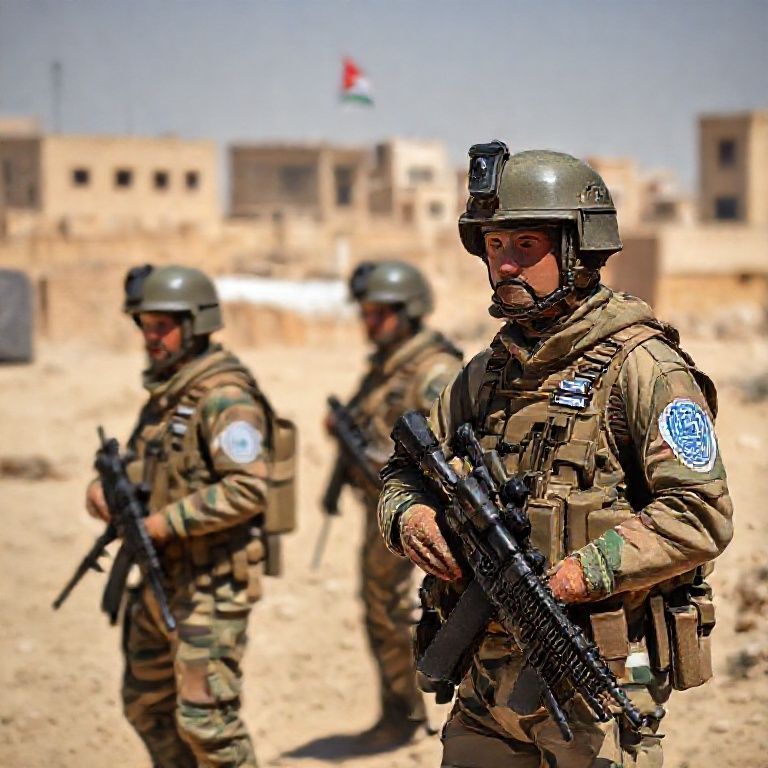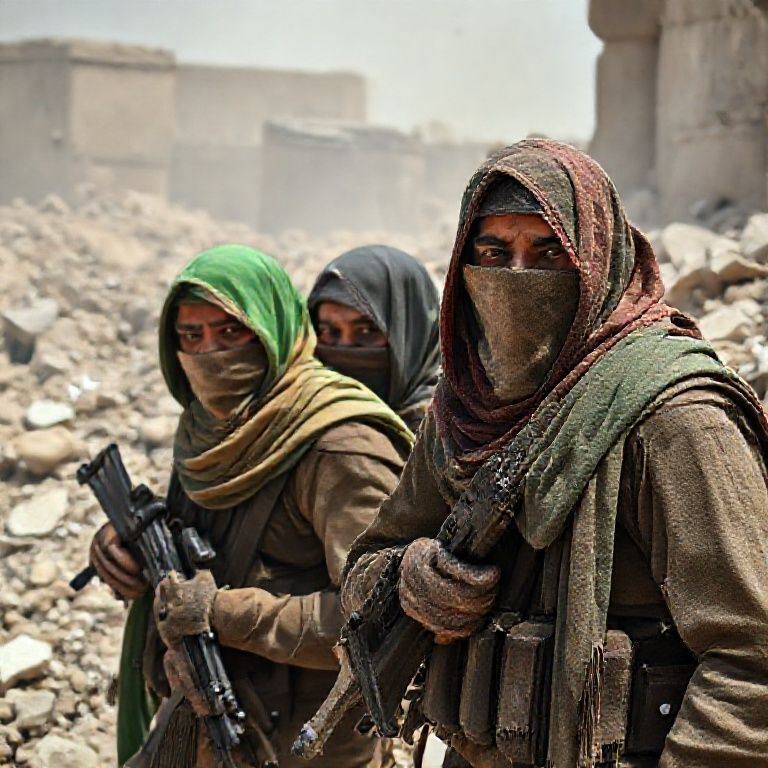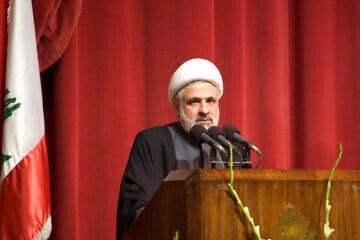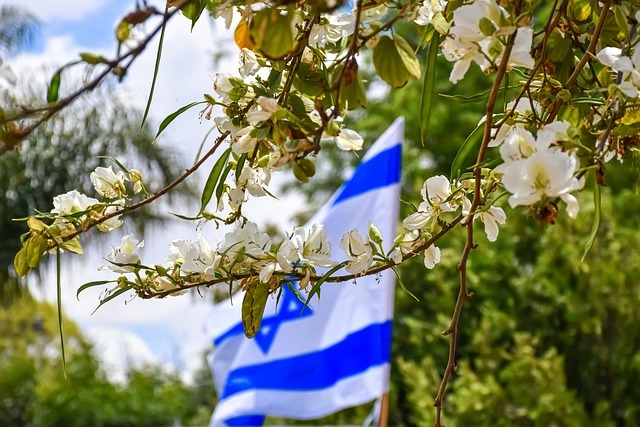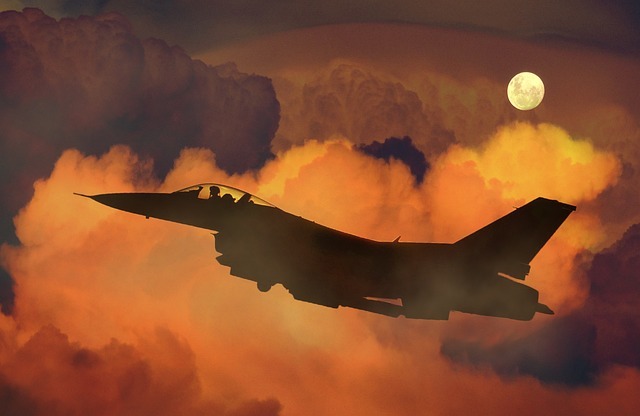War
Former Israeli officials warn that the terror organization is regrouping and planning a political takeover of Lebanon.
Yaakov Lappin
(JNS)
Since Nov. 27, 2024, Israel and Hezbollah have officially been in a state of ceasefire, but not a day goes by without the Iranian-sponsored terror faction seeking to violate the arrangement by trying to rebuild its battered capabilities, triggering Israeli airstrikes.
Simultaneously, Hezbollah is pursuing a political strategy to take over the Lebanese parliament, and the Lebanese state is largely helpless in stopping its activities, leaving Israel to do the heavy lifting, according to former senior Israeli security officials.

Col. (ret.) Jacques Neriah, an analyst at the Jerusalem Center for Security and Foreign Affairs and a former deputy head for assessment of Israeli Military Intelligence, told JNS that Hezbollah is receiving digital cash flowing from the Shi’ite diaspora and “Qassem’s money”—a reference to Hezbollah Secretary-General Naim Qassem, who replaced Hassan Nasrallah—coming in from Iraq. According to some estimates, the total of these funds amounts to nearly 500 million dollars.
“I think that right now Hezbollah is busy organizing its forces, although it has more or less completed filling the missing ranks, appointing commanders who were killed, training [elite] Radwan forces anew, operating factories for assembling precision missiles and assembling UAVs, deploying observation posts in southern Lebanon, bringing in weapons from Syria and other places into Lebanon, through the illegal crossings of which there are close to 377, and of course the flow of digital funds,” Neriah said.
Despite its losses in the war—according to Israeli assessments, it lost more than 80 percent of its pre-war arsenal by November 2024—Hezbollah still possesses a considerable arsenal, Neriah assessed. “In today’s data, they also say it has something like 30,000 projectiles left, which is not a small amount. Some of these are long-range projectiles and most are short-range rockets,” he said.
He warned that this military buildup is paired with a sophisticated political strategy to seize control of the Lebanese state. “The next mission is to take over the parliament. How? During the time of Michel Aoun, the previous [Lebanese] president, they passed a law that the Lebanese diaspora abroad will not vote for the 128 parliament members that exist on the various lists, but they will vote for six separate additional seats,” Neriah said.
“Why is that? Because most of the Lebanese who are abroad and vote are anti-Hezbollah. Meaning, if you let them vote for parliament, they [Hezbollah] will never be able to take over the parliament, and this is the next goal.”
He described Lebanon as a “failing state” and its military as a “failing army” that has no real power to implement reforms or confront Hezbollah. “It is a sectarian army, 60% of which is Shi’ite; these are all people who have family in south Lebanon, no one will raise a rifle or a finger against Shi’ite villages in southern Lebanon, so what kind of army is this?” Neriah stated.
Given this reality, he argued that the U.S. has resorted to using Israel as its proxy, he added, to pressure Beirut to take action against Hezbollah’s weapons. Ultimately, Neriah said, a large-scale Israeli air operation will be needed to further weaken Hezbollah and to enable the Lebanese government to break free of its grip. He noted that during Operation Northern Arrows by the Israeli Air Force on Sept. 23, 1,600 sorties flown by the IAF over several days were extremely effective against Hezbollah’s capabilities.

Maj. Gen. (res.) Uzi Dayan, who served as deputy chief of staff and head of the National Security Council, told JNS, “Hezbollah will do its utmost to return and recover, this is true militarily, from a terror perspective, and it is also true politically. The Lebanese government wants to weaken Hezbollah as much as possible, but the main problem for it is that it is, as usual, weak. Hezbollah will direct its build-up towards the south of Lebanon, both because it has a wide Shi’ite base there, and also because it’s far from Beirut.”
Dayan outlined a multi-stage strategy for Israel in dealing with this threat. “One, always prepare operationally according to the enemy’s capabilities and not according to his intentions, because in assessing his intentions, history is full of mistakes in trying to understand, guess the intentions, or rather predict the enemy’s intentions. It is better to prepare according to its capabilities.”
A second, non-negotiable component is maintaining a permanent buffer area, said Dayan.
“The international border in Lebanon today is in some places tens of meters from [northern Israeli] communities. This is true for Metula, it is true for Misgav Am, it is true for Shlomi, also for other places, and therefore, defense must be in a security zone. The ideal is what the Americans call a ‘death zone,’ as they did between South Korea and North Korea,” he said.
Dayan argued that any significant violation by Hezbollah should be used by Israel to expand its current narrow security zone in southern Lebanon.
Third, Dayan argued that Israel must shed its reluctance to strike first. Thwarting Hezbollah’s attempt to recover, he said, must also allow, under certain conditions agreed upon in Israel, include a pre-emptive counter-attack. “That is, there are places where you have no choice but to hit him before it hits you, and this is something Israel has refrained from doing for many years.”
Dayan dismissed the Lebanese Army as a credible force, noting that it is infiltrated by Hezbollah loyalists and that its basic functionality is “nonexistent.”
In many areas, he said, “Lebanon is state that has no street names, no house numbers, nothing state-like, no state education system, no social security, and what is more troubling on the practical side, is that the salary, for example, of a soldier in the Lebanese army is about one-eighth of the salary of a terrorist in Hezbollah.”
He also characterized the U.S. role as one of economic, not military, pressure. “The Americans are doing a kind of peace. Their peace is economic, and utilitarian,” he said. When it comes to threatening military force in the region, the U.S. will always rely on Israel.”
Therefore, he added, “this is a situation that will happen quite a lot, because we also do not intend to conquer Lebanon.”
Ultimately, Dayan concluded, “We are saying, there will be no peace that does not pass through the liquidation of terror. If this is true in Gaza, it is true in Lebanon, and it is true in Syria.”
Featured Image: Hezbollah Secretary-General Naim Qassem. Photo by Sebastian Baryli via Wikimedia Commons.
The focus, the U.S. president’s son-in-law said, was on shared interests over shared values, and handling disagreements privately.
David Isaac
(JNS)
In an interview with “60 Minutes” host Lesley Stahl that aired on Oct. 19, White House envoys Jared Kushner and Steve Witkoff recounted the chronology of events that led to the hostage-for-ceasefire deal that Israel and Hamas signed in Sharm el-Sheikh, Egypt, on Oct. 9.
Kushner said their approach was rooted in “pragmatic realism,” which he defined as preventing wars through strength and making deals instead of lecturing the world. The focus, he said, was on shared interests over shared values, working with other nations where goals aligned, and handling disagreements privately to reach the best possible outcome.
Witkoff and Kushner said the Israeli airstrike on the Hamas compound in Doha on Sept. 9—which targeted, but didn’t succeed in killing, the Hamas negotiators who were looking over the latest proposals—shredded trust among mediators and nearly capsized talks that, they claim, had been edging toward a deal.
Witkoff said the day before the Israeli strike, on Sept. 8, Kushner and Israeli Minister of Strategic Affairs Ron Dermer were at Witkoff’s home in Florida to review the various peace proposals.
“We woke up the next morning to find out that there had been this attack,” Witkoff recalled. “We felt a little bit betrayed.”
Kushner said he and Witkoff were “very upset” about the attack, which they thought was “not a smart strategic move” and violated the trust they felt they deserved from the Israeli side. He added that U.S. President Donald Trump concluded Israel was “getting a little bit out of control.”
Despite their disappointment at Israel’s action, Kushner and Witkoff concluded that the attack might provide an opening—“perhaps with all of this chaos can come an opportunity,” Kushner said.
They combined a previous ceasefire plan with an “end of war” plan into one document, secured early backing from Qatar and other Arab states, then took it to Trump, who loved the idea and urged them to “go all in.”
The president said they would align the Arab countries first, and “then … figure out how to get Israel on board” to “turn this whole negotiation around,” Kushner said.
The president garnered Arab support when he met with Arab and Muslim leaders at the U.N. General Assembly on Sept. 23. They came out of that meeting with “almost unanimity, consensus support from everybody there,” Witkoff said. “We were talking directly to the people who make the final decisions. And that ultimately became … critical to us being successful.”
On Sept. 29, Israeli Prime Minister Benjamin Netanyahu met with Trump at the White House. The prime minister agreed to the president’s request that he apologize to Qatari Prime Minister and Minister of Foreign Minister Sheikh Mohammed bin Abdulrahman Al Thani for the Israeli airstrike.
Witkoff called it the “linchpin” that enabled the sides to move to the next stage.

That same day, Trump announced his 20-point plan. Kushner explained that by gaining Arab endorsement for the plan, they shifted global pressure from Israel onto Hamas, leaving it “isolated” and compelled to respond. That move, Kushner said, “changed the entire global dynamic,” prompting Arab mediators—Qatar, Turkey and Egypt—to tell Hamas: “It’s time to make this deal.”
Witkoff said it was crucial to include tangible benefits for Hamas in the 20-point plan—including amnesty, Israeli force redeployments, and incoming aid—and that Trump’s personal backing made those guarantees credible. He emphasized that any lasting peace required something for both sides, noting that Hamas members were not required to leave Gaza, a key concession that helped keep negotiations alive.
On Oct. 8, Kushner and Witkoff traveled to Sharm el-Sheikh to meet directly with Hamas negotiators, a meeting they say Trump green-lighted if it could clinch a deal. In the room were representatives from Qatar, Turkey and Egypt, along with four Hamas officials.
Witkoff opened by offering condolences to the Hamas lead negotiator, Khalil al-Hayya, whose son was killed in the Doha strike, and noted he was a bereaved father himself. The exchange, Kushner said, “turned [the room] from a negotiation with a terrorist group to seeing two human beings.”
The bargain struck there called for the return of 48 hostages—20 alive and 28 deceased—in exchange for an agreed ratio of Palestinian prisoners. To address Israel’s central fear of Hamas regenerating, Kushner said Jerusalem accepted a step-down “Yellow Line” redeployment, where it remained in part of the Gaza Strip with further withdrawals conditioned on the creation of an international stabilization force, Hamas disarmament and destruction of its military infrastructure.
In return, Hamas sought guarantees that Israel would be held to commitments once hostages were released. “Given the relations between Israel and Hamas, there was zero trust anywhere to be found,” Kushner said.
Netanyahu invited Kushner and Witkoff to attend the Oct. 10 Israeli Cabinet session that ratified the deal—an impromptu move, Witkoff said, that signaled the prime minister’s support.
Although the Cabinet was supportive, National Security Minister Itamar Ben-Gvir expressed misgivings. “At some point, you got to let it go. We just can’t play the victim all the time,” Witkoff told him.
The Cabinet vote in favor started a 72-hour deadline for Hamas to begin releasing hostages.
Witkoff and Kushner caution that the agreement could fray without rapid progress on security architecture and governance. “Phase one was very hard. Phase two could potentially be even harder,” Kushner said.
Witkoff estimated reconstruction efforts for Gaza will be in the $50 billion range. “It’s rough there because it’s not just rubble, it’s a lot of unexploded munitions all over the field,” he said.
Witkoff and Kushner visited Gaza on Oct. 11. “It looked almost like a nuclear bomb had been set off in that area,” Kushner said.

Both rejected the claims that genocide had been committed. Witkoff flatly rejected the accusation—“There was a war being fought.”
Kushner’s advice to Israel on how to move past global criticism is to focus on being “exceptional.” Those who are friendly to Israel gain from its ingenuity and innovation—“I think that in a couple of years from now, you’ll see Israel going from controversial to very, very popular again on the world stage,” he said.
Image: U.S. envoys Steve Witkoff (center) and Jared Kushner during a visit to the Gaza Strip with Israel Defense Forces Chief of Staff Lt. Gen. Eyal Zamir, Oct. 11, 2025. Credit: IDF.
It is the cradle of Jewish civilization, where Abraham walked, where our prophets preached and where the Jewish people lived for millennia.
Avi Abelow
(JNS)
U.S. President Donald Trump stated on Thursday that he would not allow Israel to “annex the West Bank.” For some, the statement triggered anger. For others, disappointment. Personally? I’m neither surprised nor worried.
Let’s start with terminology. The phrase “West Bank” is not neutral. It is a term used by those who seek to erase the deep-rooted Jewish connection to this land. The accurate name—historically, biblically, and morally—is Judea and Samaria.
This is the cradle of Jewish civilization, where Abraham walked, where our prophets preached and where the Jewish people lived for millennia. The term “West Bank” gained traction only after Jordan’s illegal 19-year occupation of the area following the 1948 war. But Jordan’s propaganda does not rewrite history. You do not “annex” land that already belongs to you.
Was Trump merely using the wrong term? Perhaps. But more likely, he meant exactly what he said.
And yet, I remain calm—because I am a realist. Realism requires stepping beyond headlines and slogans to grasp the broader context.
Trump, regardless of this recent remark, has proven himself to be among Israel’s strongest allies. He moved the U.S. embassy to Jerusalem. He recognized Israeli sovereignty over the Golan Heights. He pulled the U.S. out of the catastrophic Iran nuclear deal. He consistently and unapologetically supported Israel’s right to self-defense across the region.
Still, realism also means facing difficult truths: No U.S. president, Trump included, can dictate Israel’s destiny. Sovereignty over Judea, Samaria, and Gaza is not only inevitable; it is essential for Israel’s survival and for the values of the free world.
Why? Because Hamas will never disarm. The Palestinian Authority will never cease funding terror and glorifying murder. The international community will always prioritize appeasement over Jewish security. And the two-state “solution” has always been a slogan masking a long war to destroy the Jewish state.
On Oct. 7, 2023, Hamas proved once again that its war is not about borders—it is about annihilation. From the massacre of infants to the kidnapping of civilians, Hamas does not represent a liberation movement. It is a death cult. And its so-called “moderate” counterparts in the Palestinian Authority are no better—they name schools after terrorists, pay salaries to murderers, and incite violence as a form of governance.
So what exactly is Israel supposed to do, leave Judea and Samaria in their hands? We’ve already tried that playbook. In 2005, Israel fully withdrew from Gaza. Not a single settler remained. Not even a grave was left. What did we get in return? Terror tunnels, rocket fire, and the horrors of October 7th.
Never again.
The status quo is untenable. If Israel does not assert sovereignty over Judea, Samaria, and Gaza, someone else will—whether it’s Hamas, the PA, or worse. And wherever there is lawlessness, Jewish blood is spilled.
But above all, I’m not worried because, as a Jew, I do not place my ultimate faith in politicians—not even ones as supportive as President Trump. I place my faith in God.
Yes, we must act—defend ourselves, speak truth, and build, but the ultimate outcome lies in God’s hands. The modern rebirth of Israel? Victory in wars against impossible odds? The survival of our people through October 7th’s genocidal onslaught? None of it was “supposed” to happen. And yet it did.
Because our return to this land is not a political coincidence, it is a divine promise unfolding before our eyes.
So I am grateful. To Trump for his past support. To Prime Minister Netanyahu for his leadership. And to God for guiding our people home.
I remain focused on the task at hand: educating, advocating, and explaining why sovereignty over Judea, Samaria, and Gaza is not an obstacle to peace—it is the path to ending the war against us.
Trump has even introduced a logical, humane approach to this conflict: his Gaza emigration plan, offering Arabs the choice to leave rather than remain embedded in a terror infrastructure that is collapsing. That plan is grounded in reality—not in fantasies of peace with entities sworn to our destruction.
This will happen—under Trump and Netanyahu or under future leaders. It is not a question of if, but when.
Why am I certain? Because I am a realist. And because I believe in the destiny of the Jewish people in the Land of Israel. All of it.
Judea and Samaria are not bargaining chips. They are the heart of our homeland. And we will not be deterred.
The hard truth that many in the West still refuse to acknowledge is this: Hamas, Islamic Jihad, and their allies are not fighting over lines on a map. They are soldiers in a 1,400-year global jihadist movement bent on conquering the free world.
Oct. 7 wasn’t just an assault on Israel. It was an assault on the values of every free society. That’s why Israeli sovereignty—and Trump’s emigration plan—are not just moral imperatives for Israel. They are strategic necessities for the entire civilized world.
Appeasement invites terror: only moral clarity and decisive action defeat evil.
The Jewish people in our ancestral land have that clarity. Those who support us will be blessed. Those who stand in our way will not.
Yes, it really is that simple. Sovereignty is coming. Just wait and see.
Judea and Samaria are not a bargaining chip. It is the heart of our home, and the destiny of the Jewish people is in the Land of Israel, all of it.
No one will stop us from claiming what is ours. The hard truth that too many in the West still refuse to acknowledge is that the ideology driving Hamas, Islamic Jihad, and their backers is not about a border dispute with Israel; it’s a 1,400+ year global jihadist movement committed to subjugating and conquering the world.
Oct. 7 was not only an attack on Israel, but an attack on the values of every freedom-loving society. That’s why the loss of land for radical Islamic movements in Judea, Samaria and Gaza, through Israeli sovereignty, combined with Trump’s own emigration plan, is a necessary way to uproot this terror infrastructure and protect the entire civilized world from a 1,400-year-old jihadist ideology.
Appeasing that ideology instead of crushing it, and pressuring Israel not to apply sovereignty, is not just bad for Israel. It is disastrous for the United States, for Europe, and for the entire Western world, because it signals weakness and invites more terror, not less.
History has shown us that only moral clarity and decisive action defeat evil, never appeasement.
The Jewish people, in our God-given ancestral homeland, possess that moral clarity. Those who bless us and support us to do what is necessary will be blessed. Those who curse us and stop us from doing what needs to be done will be cursed.
Yes, it’s that simple. All one has to do is strengthen their faith in the only entity worthy of faith, God.
Onwards to sovereignty and Trump’s emigration plan! When? Just wait and see!
The IDF attacked power stations, fuel sites and missile bases.
JNS Staff
(JNS)
The Israel Defense Forces attacked several key locations in Yemen on Sunday, including in the capital Sanaa and the port city of Hodeidah, following the first-ever cluster missile fired by the Houthis at Israel on Friday night.
“A short while ago, the IDF struck military infrastructure of the Houthi terrorist regime in the Sanaa area, including a military site in which the presidency palace is located, the Asar and Hizaz power plants, and a site for storing fuel; all were used for the military activity of the Houthi terrorist regime,” the IDF reported in a statement.
“The strikes were in response to “repeated attacks by the Houthi terrorist regime against the State of Israel and its civilians, including the launching of surface-to-surface missiles and UAVs toward Israeli territory in recent days,” the IDF said.
“The presidential palace in the Sanaa area is located within a military site from which the military forces of the Houthi terrorist regime operate.
“In addition, the Hizaz and Asar power plants were struck, which served as a significant electricity supply facility for military activities.
“The strike on the power plants damages the production and supply of electricity for military purposes. The use of these plants constitutes further proof of how the Houthi regime uses civilian infrastructure for military purposes.
“The Houthi terrorist regime operates under the direction and funding of the Iranian regime, in order to harm the State of Israel and its allies. The terrorist regime exploits the maritime domain to project force and carry out terror activity against global shipping and trade routes, the IDF said.
Israel is striking targets in Yemen pic.twitter.com/fMX3rgFHqo
— Amichai Stein (@AmichaiStein1) August 24, 2025
The IDF said the attack came in response to the missile the Houthis fired on Friday evening, which the Israeli Air Force revealed on Sunday was a cluster munition.
Israel failed to intercept that missile; the IDF spokesman said on Sunday that “the missed interception last Friday is being investigated and is not related to the type of missile that was launched.
“The air defense systems, with an emphasis on the upper layer, know how to deal with and intercept missiles of this type, as they have intercepted [them] in the past.”
(Upper layer air defense systems are designed to intercept long-range ballistic missiles at high altitude, including outside the atmosphere.)
It was initially suspected that Israel failed to intercept the missile because it had fragmented in mid-air. One piece fell into a backyard but no one was hurt.
The missile contained a warhead with 22 small, armed bombs, which explode when they fall. It’s an identical missile to one fired by the Iranians at Israeli territory in June, Israeli news site N12 reported.
Published on Sun, 24 Aug 2025 10:14:49 -0400. Original article link
